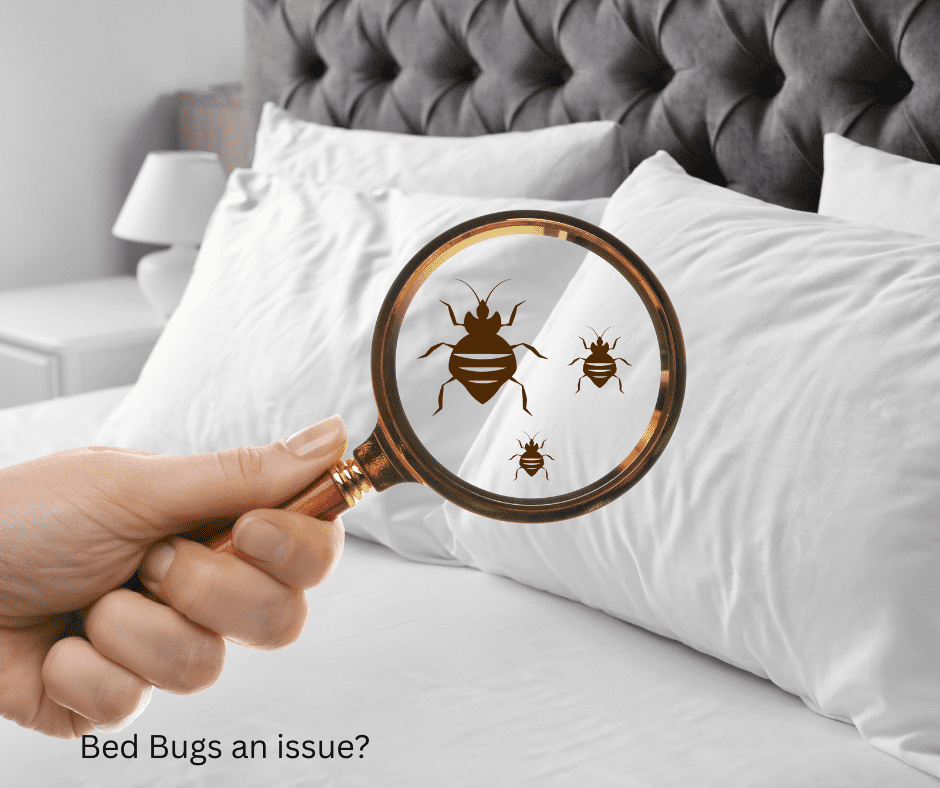From Hotels to HGVs: Expert Reveals How Bed Bugs Are Getting Across Borders The resurgence of bed
From Hotels to HGVs: Expert Reveals How Bed Bugs Are Getting Across Borders
The resurgence of bed bugs, how and why?
According to Harvard Health, bed bug infestations have surged globally over the past decade, fuelled by international travel, global trade, and shifting climates. Pest control experts warn these pests are more mobile than ever; expert hitchhikers that cling to clothing, hide in luggage, and infest taxis, trains, planes, and increasingly hitting family holidays.
James Rhoades, pest control expert at ThermoPest, says the problem is growing fast:
“We’ve seen a noticeable rise in bed bug-related enquiries, particularly involving vehicles, even those travelling abroad. People often forget that bed bugs can hitch a ride on clothing, luggage or through infested seats. It’s surprisingly easy for them to come back with you.”
Early prevention is key: Pest control expert James shares pro tips
The best way to manage bed bugs is to stop them before they spread. Early detection and regular inspections are vital, requiring both planning and vigilance. James at ThermoPest shares the following:
Before you travel:
- Pack clothes in sealed plastic or bed bug-proof garment bags to create a barrier against pests.
- Thoroughly check your suitcases and cabin bags for bed bugs before packing.
- Choose hard-shell suitcases; they offer fewer hiding spots for bed bugs compared to fabric bags.
- During your trip:
 Check the accommodation’s mattress, headboards, and furniture for bed bugs.
Check the accommodation’s mattress, headboards, and furniture for bed bugs.
Keep clothes stored in sealed plastic bags, and avoid placing bags on fabric furniture.
If possible, wash and dry clothes at a high temperature during your trip to kill any potential bedbugs.
After your trip:
Unpack luggage outside to avoid bringing potential bed bugs indoors.
Immediately wash and dry clothes at a high temperature upon return.
Vacuum all luggage and bags when you return home, and dispose of the vacuum bag in the bin.
Seek professional help from a pest control company if you suspect bed bugs.
‘Our Centre Parcs holiday turned into a nightmare’
A UK family have spoken out after their Centre Parcs break was cut short, reportedly due to a
bed bug infestation in their accommodation. In a post on social media, holidaymaker Katie
Shacklock said that her family, travelling with a terminally ill relative, were told to leave the
premises immediately and had to hand over clothes and belongings for “treatment.”
In her post, Shacklock says that, while on-site staff were compassionate, what followed was
three weeks of silence, damaged possessions, and devastating stress.
“We lost clothes, shoes, and irreplaceable items, my daughter’s school coat was ruined. We
had to chase for any updates. It felt like they stopped caring the moment we left,” the parent said.
Commenting on the post, James Rhoades said,
“This experience highlights just how emotionally and financially damaging a bed bug incident can be, and why early prevention is critical.”
How they hitchhike across borders
Thanks to their tiny size, bed bugs can hide inside delivery vans, trains, ships, and aircraft, spreading quickly along transport routes.
“They’re particularly drawn to high-traffic tourist areas,” says James.
“Short-term rentals such as Airbnb’s, hostels and hotels are common hotspots, as are motels and caravan parks.”
 Bed bugs are remarkably resilient: they can cling to clothes and luggage, survive for weeks without feeding, and live up to 12 months in stable indoor conditions
Bed bugs are remarkably resilient: they can cling to clothes and luggage, survive for weeks without feeding, and live up to 12 months in stable indoor conditions
A high-profile example: Google HQ outbreak & Eurostar
The issue recently made headlines after reports of a bed bug outbreak at Google’s New York HQ. The incident underscored how easily these pests can travel undetected, even into
high-security corporate environments. “No environment is immune, ” James warns.
“From offices to hotels, bed bugs can latch onto belongings and go completely unnoticed until an infestation takes hold.”
Across Europe, transport operators are also stepping up checks. Eurostar increased inspections following sightings on Paris Metro and French trains, while in the UK, HGV drivers are being advised to monitor cabins and sleeper bunks, both ideal environments for bed
bugs.
Impact on industries and travellers
“Bed bugs can cause more financial damage than many realise,
” James warns. “Beyond the reputational harm for hospitality or travel providers, the cost of controlling infestations can be significant, especially if the wrong treatment is used.”
“Aside from the reputational damage that comes along with bed bugs, it’s also an adverse risk to travellers, potential customers, and employees. While bed bugs don’t directly spread
diseases, scratching bites can result in secondary infections, and the stress of an infestation can disrupt sleep or mental well-being. ”
Awareness is the best defence.
In a world of constant movement, vigilance is essential. Bed bugs are no longer confined to mattresses; they’re turning up in vehicles, luggage, and public spaces. Regular inspections and awareness are the strongest lines of defence.
If you suspect a problem, don’t wait. Seek advice from a professional pest control expert to ensure effective, targeted treatment and peace of mind.
Credit https://pest.co.uk/

